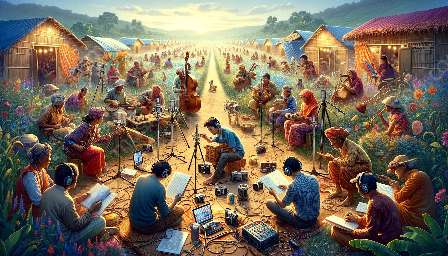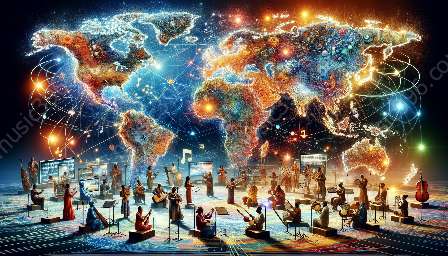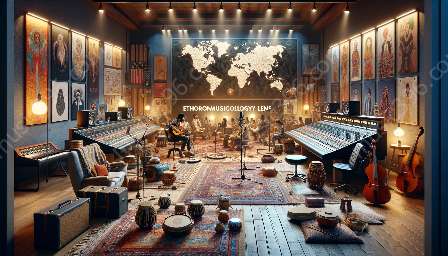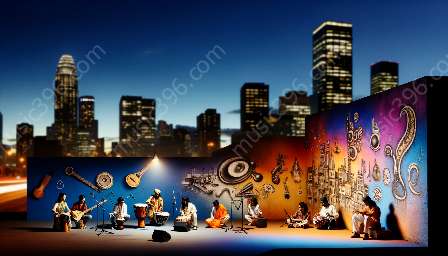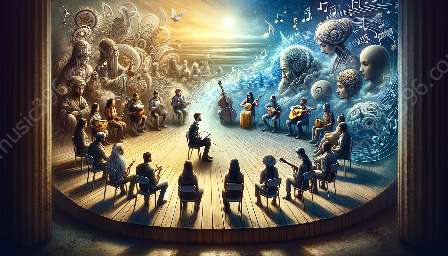Urban music communities have long been influenced by digital technology and online platforms, shaping the evolution of ethnomusicology and urban music cultures. As the digital landscape continues to expand, it is crucial to explore the impact of digitization on urban music scenes, their communities, and the discipline of ethnomusicology.
Digital Ethnomusicology and Urban Music Cultures
Digitization and online platforms have transformed the way urban music communities engage with music and culture. Ethnomusicologists have recognized the significance of digital technologies in documenting, preserving, and analyzing urban music cultures. By integrating digital tools into their research, scholars can gain deeper insights into the dynamics of urban music communities and the ways in which digital interfaces influence musical expressions within urban environments.
Shifts in Music Consumption and Creation
The rise of online platforms has redefined the landscape of music consumption and creation within urban communities. Streaming services, social media, and digital distribution channels have provided urban musicians with unprecedented opportunities to reach global audiences. Moreover, the ease of digital recording and production has empowered aspiring artists to create and share music without traditional industry barriers. This dynamic shift in music creation and consumption has had far-reaching implications for the cultural identity and representation of urban music communities.
Global Connectivity and Local Identity
Digitization has facilitated global connectivity while simultaneously influencing the preservation of local identity within urban music communities. Online platforms enable musicians and enthusiasts to connect across geographical boundaries, fostering the exchange of musical ideas and influences. At the same time, digital spaces allow urban music communities to showcase their unique cultural heritage and expressions, contributing to the preservation and celebration of local identities in an increasingly globalized world.
Challenges and Opportunities
While digitization has brought about numerous opportunities for urban music communities, it has also presented challenges that require careful consideration. The accessibility of online platforms raises issues related to copyright, intellectual property, and fair compensation for artists. Furthermore, the abundance of digital content can overshadow the visibility of marginalized urban music cultures. Ethnomusicologists must address these challenges by critically examining the impact of digitization on cultural representation, ownership, and access within urban music communities.
Future Directions in Ethnomusicology
The evolving landscape of digitization and online platforms necessitates a reevaluation of research methodologies and approaches within ethnomusicology. Scholars are exploring innovative ways to incorporate digital ethnography, data visualization, and multimedia storytelling into their studies of urban music cultures. By embracing these digital tools, ethnomusicologists can illuminate the complex intersections between technology, society, and music, ensuring a holistic understanding of the implications of digitization for urban music communities.


